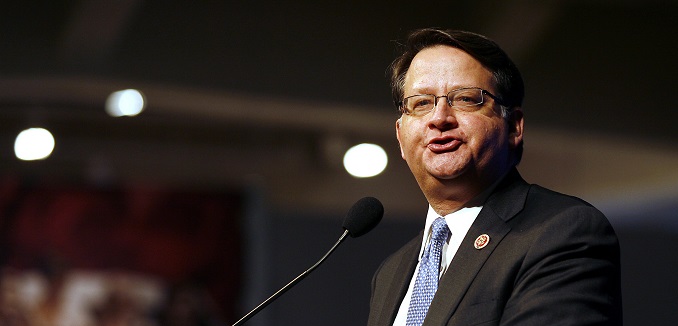Fifteen Democratic senators who originally supported the nuclear deal with Iran have written a letter to President Barack Obama criticizing the deal’s inspection procedures, Politico reported Friday.
The group, led by Sen. Gary Peters (D-Mich.), called on Obama to pressure the International Atomic Energy Agency (IAEA), which performs inspections on suspected Iranian nuclear sites, to release more information from its inspections. Currently, the IAEA does not publicly disclose critical details like the size of Iran’s uranium stocks or how many centrifuges it is operating, instead simply announcing whether Iran is, overall, in compliance with its obligations.
“Providing additional situational awareness of Iran’s nuclear program is vital for the long-term health of this agreement,” the letter read. “We urge [the Obama] administration to ensure that the IAEA releases all relevant technical information so that we may continue to make our own judgments about the status of Iran’s nuclear program.”
The letter also criticized the inspections regime for not providing detailed updates on Iran’s Fordow facility, a key site for Iranian nuclear weapons research.
Among the signers were vice-presidential hopefuls Cory Booker (D-N.J.) and Tim Kaine (D-Va.). Kaine is also on the Senate Foreign Relations Committee, as is fellow letter signer Chris Coons (D-Del.). Another signatory was Ron Wyden (D-Ore.), who wrote in a press release in September that “this agreement with the duplicitous and untrustworthy Iranian regime falls short of what I had envisioned,” and specifically raised concerns about secret “side deals” between Iran and the IAEA.
IAEA chairman Yukia Amano admitted in March that the terms of the nuclear deal limited the amount and types of information that the agency could publicly report.
News of the letter comes a day after a bipartisan group of senators, led by Senate Foreign Relations Committee chairman Bob Corker (R-TN) called for a new round of sanctions against Iran. Corker said the legislation is designed to “push back against all of the other nefarious activities that we know Iran is involved in in the region.” He specifically listed ballistic weapons testing and cybercrime as areas that are not adequately covered by existing sanctions. Iran has continued to test ballistic missiles despite international criticism, including from United Nations General-Secretary Ban Ki-moon.
[Photo: The Henry Ford Museum / flickr]




